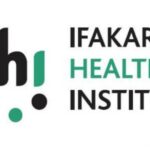
Website Ifakara Health Institute
The Ifakara Health Institute is a health research organization
Senior Research Scientist – Postdoc in Geospatial Modelling Job Vacancies at Ifakara Health Institute – (2 Posts)
Senior Research Scientist – Postdoc in Geospatial Modelling (2 Posts) – Dar
The position of Senior Research Scientist – Postdoc in Geospatial Modelling reports directly to the Principal Investigator (PI) and is based in Dar es Salaam.
Position Summary
Ifakara Health Institute (IHI) is seeking PostDocs with advanced modelling skills will contribute to the Malaria Atlas Project (MAP) East Africa (EA) Node’s mission and objectives of developing and employing cutting-edge advanced geospatial analytical architectures to understand the risks and estimating the burden of Plasmodium falciparum and Plasmodium vivax malaria, assessing the impact of interventions across various levels and settings at global, regional and national to provide the National Malaria Control Programmes (NMCPs) with the quality evidence to guide optimal allocation of resources in malaria endemic countries. The post-docs are expected to follow coding and data-management standards, develop methodologies that can be utilized by others within the team and/or used in a complex analytical pipeline. As a scientific achievement, postdocs should take leadership in the preparation of scientific reports and journal articles for publication of research findings from their work in open access journals but also contribute to the team communication strategies.
This role will also involve collaboration with a wide range of malaria stakeholders, translating model outputs to NMCPs and communicating the utility to the malaria decision, building and strengthening analytical skills to others through training, mentoring and supervision.
Duties and Responsibilities
Geospatial modelling and coding standards
- To provide statistical expertise in development and implementation of spatiotemporal models to respond to a variety of malaria research questions related to risk estimations, estimating of morbidity and mortality, understanding transmission profiles, and optimizing the impact of interventions
- To guide others and contribute to the best presentation of outputs from analysis, interpretation of results and relevant conclusions.
- Manage own academic research and administrative activities, including small-scale project management to coordinate multiple aspects of the work to meet deadlines.
- Lead collaboration and engagements with NMCPs to translate and communicate MAP’s modelling efforts, products, and outputs to foster utilization and uptake.
- Work with the data scientist and data engineering team on creating data-pipelines, setting up computation infrastructure and managing NMCP’s data and outputs requests.
- Work collaboratively with other scientists within the wider MAP group to produce estimates of malaria, acting as a source of information and advice to other members of the group.
- Apply due diligence by scrutinizing model results for all project deliverables, reviewing and refining theories as appropriate.
- Maintain rigorous data- and code management practices, including thorough documentation and version control, to ensure data replicability and cross-compatibility with past and future MAP products.
- Contribute ideas for new research projects and for generating research income.
- Contribute to and, as appropriate, lead, in the preparation of scientific reports and journal articles for publication of research findings from this work in open access journals.
- Present the research findings from this work at selected regional and international conferences and meetings.
- Travel to collaborators in different MECs, Europe, the United States, Africa, and Asia.
Workplace Safety
- Take reasonable care for your own safety and health and avoid harming the safety and health of others through any act or omission at work.
- Identify and assess workplace hazards and apply hazard controls.
- Report every workplace injury, illness or near miss, no matter how insignificant they seem.
- Abide by institutional policies and procedures.
Qualification and Experience
Essential
- PhD in biostatistics, mathematics, or a similar quantitative discipline with epidemiological knowhow.
- Expertise in Bayesian modelling using Gaussian processes with demonstrable understanding of the issues arising from scaling these models to a global scale, validation, assessing performance and sensitivity analysis.
- Experience of multi-metric analysis and covariate selection in the context of modelling large and complex data with spatial correlations.
- Experience of state-of-the-art statistical software libraries such as INLA, TMB or similar packages.
- Demonstrable commitment to using best practices in writing code, including the use of source control, code documentation/repositories, and coding standards.
- Experience of working with national disease programmes, managing relationships with senior stakeholders, data-owners, and collaborators.
- Experience in research design and implementation, analyzing routine health data in LMICs hence good understanding of challenges on data utilization and quality issues in low resource settings.
- Ability to manage own academic research, mentoring junior staff, define and meet milestones on time.
- Demonstrable evidence of having worked successfully within a collaborative, team-based research setting.
Desirable
- An understanding of the malaria epidemiology and public health surveillance
- Track record of scientific publications in high quality peer-reviewed journals in the areas of epidemiology, modelling or health system research
- Experience of working with NMCPs, understanding of malaria surveillance including using DHIS2.
- Knowledge and experience in working with ministries of health in LMICs, funding agencies and bilateral organizations.
- Experience in developing and delivering training for different audiences;
- Knowledge of other languages including Swahili, French, Spanish, Portuguese.
Skills and Competencies
- Excellent communication skills (oral and written) in both professional and courteous manner.
- Proficiency in one or more programming languages (e.g., R/Python, Stata), knowledge of other statistical software and data visualization applications.
Remuneration
An attractive and competitive remuneration package will be offered to successful candidates as per IHI salary scales.
Equal Opportunity
IHI is an equal opportunity employer. We prohibit intentional biases or discrimination and harassment of any kind at the work place and during recruitment. All employment decisions are based solely on job requirements and individual qualifications, and our recruitment process is governed by the labour laws of Tanzania.
Mode of Application
All candidates who meet the above job requirements should send their application letters together with their detailed curriculum vitae (CVs) showing contact addresses including email, telephone/cell phone numbers and copies of academic and professional certificates to the email address below.
The deadline for this application is 17:00 hrs on Friday 8 November 2024. All e-mail application subject lines should include: [Senior Research Scientist – MAP EA Node]. Only shortlisted applicants will be contacted for interview.
Human Resources Manager
IFAKARA HEALTH INSTITUTE
Plot 463 Mikocheni
P.O. Box 78,373
Dar es Salaam, Tanzania
Email: recruitment@ihi.or.tz
